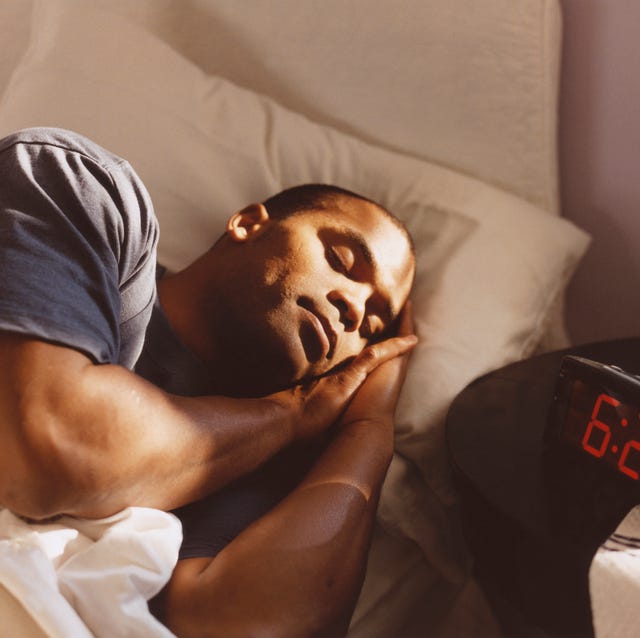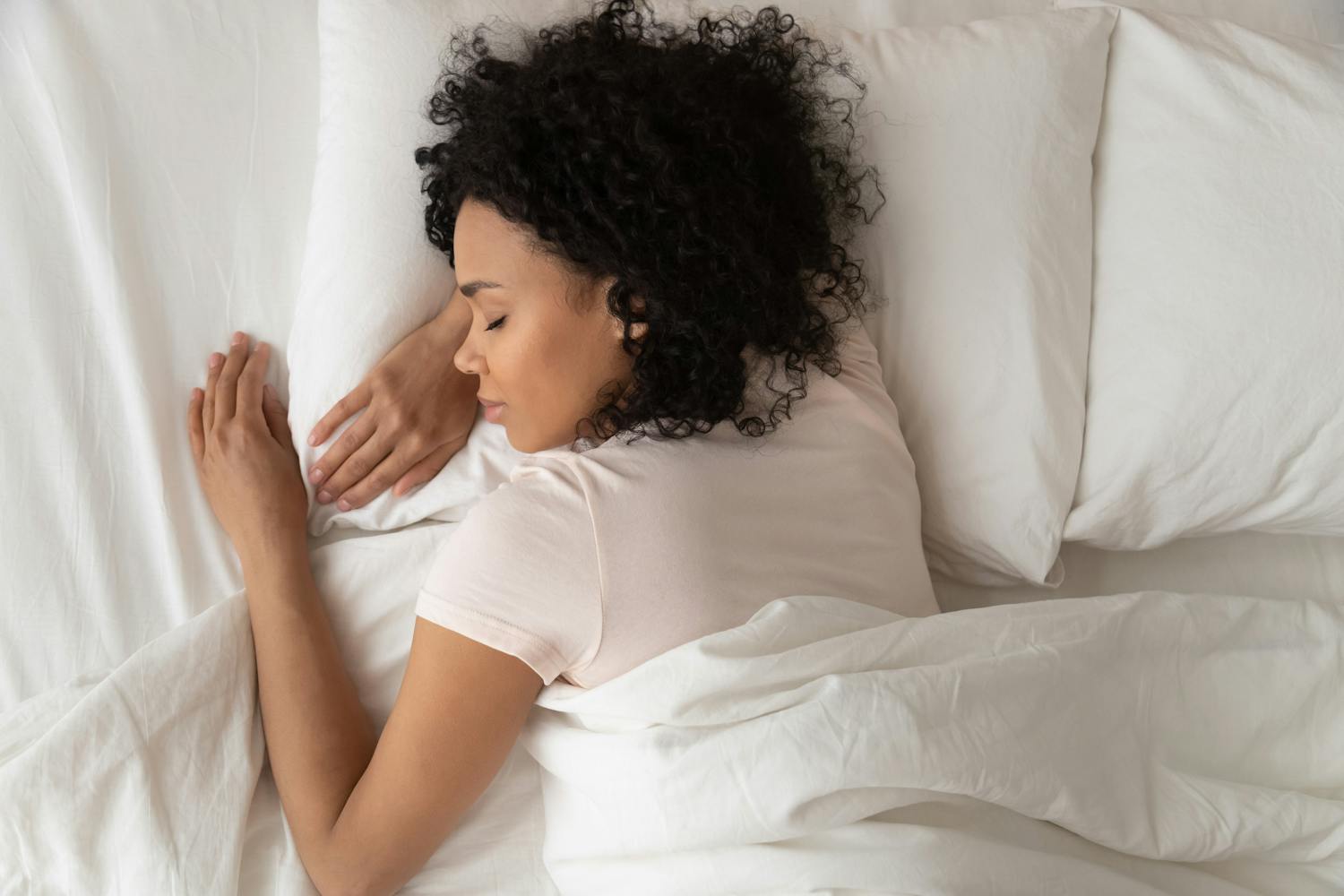Effective Insomnia Therapy - Restore Your Restful Nights
Effective Insomnia Therapy - Restore Your Restful Nights
Blog Article
Effective Treatment Solutions for Handling Rest Disorders and Enhancing Restful Rest
In the realm of medical care, the monitoring of sleep conditions and the mission for relaxed rest are pivotal parts of overall health. As we navigate the complex landscape of sleep problems and look for to enhance our sleep experience, a much deeper understanding of these treatment remedies may hold the key to unlocking an extra relaxing and fulfilling corrective trip.
Cognitive Behavior Modification for Sleep Problems (CBT-I)
Cognitive Behavior Modification for Insomnia (CBT-I) is an organized, evidence-based treatment method that concentrates on resolving the hidden factors contributing to rest disruptions. This kind of treatment intends to modify habits and thoughts that intensify insomnia, eventually promoting healthy and balanced rest patterns. CBT-I generally entails numerous vital components, including cognitive therapy, sleep restriction, stimulus control, and rest hygiene education.
Cognitive therapy aids people recognize and transform unfavorable thought patterns and beliefs about sleep that may be hindering their capacity to drop or remain asleep. Rest constraint entails restricting the quantity of time invested in bed to match the individual's real rest period, thus boosting rest performance (natural insomnia remedies). Stimulation control techniques help develop a strong association in between the bed and rest by urging individuals to go to bed just when sleepy and to stay clear of participating in stimulating activities in bed
In addition, sleep health education and learning concentrates on creating healthy and balanced sleep behaviors, such as maintaining a consistent sleep schedule, producing a relaxing bedtime regimen, and optimizing the rest environment. By addressing these variables thoroughly, CBT-I offers an efficient non-pharmacological intervention for managing sleeping disorders and improving total sleep top quality.
Sleep Health Practices
Having developed the foundation of cognitive restructuring and behavioral alterations in resolving sleeping disorders through Cognitive Behavior modification for Sleeplessness (CBT-I), the focus now changes in the direction of discovering vital Sleep Health Practices for maintaining ideal rest high quality and general health.
Rest hygiene techniques encompass an array of behaviors and environmental factors that can dramatically impact one's capability to drop off to sleep and remain asleep throughout the night. Constant sleep and wake times, creating a relaxing bedtime routine, and optimizing the sleep atmosphere by maintaining it dark, silent, and cool are important parts of great sleep hygiene. Restricting direct exposure to displays prior to going to bed, preventing stimulants like high levels of caffeine near bedtime, and participating in regular exercise throughout the day can additionally promote far better sleep quality.
In addition, exercising relaxation strategies such as deep breathing workouts or reflection prior to bed can aid calm the mind and prepare the body for rest. By including these rest hygiene practices into one's daily regimen, individuals can establish a healthy rest pattern that supports relaxing rest and general well-being.
Relaxation Methods and Mindfulness
Carrying out leisure methods and mindfulness techniques can play a crucial role in cultivating a feeling of calmness and advertising top quality sleep. In addition, directed imagery can aid deliver individuals to a serene area in their minds, aiding in anxiety decrease and improving sleep top quality.
Mindfulness techniques, such as reflection and yoga, are likewise reliable in advertising leisure and boosting rest. Mindfulness encourages people to remain present in the minute, allowing go of worries about the past or future. By integrating these methods into a going to bed regimen, people can signify to their bodies that it is time to take a break and prepare for rest. Generally, integrating leisure methods and mindfulness practices can considerably add to taking care of sleep disorders and enhancing total rest top quality.

Medication Options for Rest Disorders
After checking out relaxation techniques and mindfulness practices as non-pharmacological treatments for boosting rest high quality, it is vital to think about medicine choices for individuals with sleep problems. In cases where way of living adjustments and therapy do not give adequate alleviation, medication can be a beneficial tool in taking care of rest disruptions.
Typically suggested drugs for sleep conditions include benzodiazepines, non-benzodiazepine hypnotics, antidepressants, and melatonin receptor agonists. Benzodiazepines, such as diazepam, are sedatives that can help induce sleep, yet they are generally suggested for short-term use because of the danger of reliance. Non-benzodiazepine hypnotics like zolpidem are additionally utilized to treat sleeplessness and have a reduced risk of dependancy contrasted to benzodiazepines. Antidepressants, such as trazodone, can be valuable for individuals with co-occurring depression and sleep disruptions. Melatonin receptor agonists, like ramelteon, target the body's natural sleep-wake cycle and can be helpful for controling sleep patterns.
It is essential for individuals to seek advice from with a doctor to identify the most appropriate drug choice based upon their details sleep disorder and clinical background.
Light Therapy for Body Clock Guideline
Light treatment, also called phototherapy, is a non-invasive therapy approach additional resources utilized to regulate circadian rhythms and boost sleep-wake cycles. This therapy entails exposure to brilliant light that mimics all-natural sunlight, which assists to reset the body's biological rhythm. By subjecting people to details wavelengths of light, normally in the morning or evening relying on the hypothyroidism and sleep apnea preferred result, light therapy can properly readjust the circadian rhythm to advertise wakefulness throughout the day and enhance restful rest in the evening.
Research study has actually shown that light therapy can be especially beneficial for individuals with circadian rhythm disorders, such as delayed rest stage syndrome or jet lag. It can also be valuable for those experiencing seasonal depression (SAD), a kind of anxiety that commonly happens throughout the cold weather when natural light direct exposure is minimized. Light therapy is typically well-tolerated and can be utilized together with other therapy approaches for rest disorders to enhance end results and improve overall sleep top quality.
Conclusion
To conclude, reliable therapy options for handling sleep conditions and enhancing peaceful rest include Cognitive Behavior modification for Sleeplessness (CBT-I), sleep hygiene methods, relaxation methods and mindfulness, drug choices, and light therapy for circadian rhythm law. These strategies can help people boost their rest top quality and total health. It is very important to speak with a doctor to establish one of the most ideal technique for addressing rest problems.
As we navigate the intricate landscape of rest conditions and seek to improve our rest experience, a deeper understanding of these treatment services might hold the secret to unlocking an extra refreshing and meeting restorative trip.
Rest restriction involves restricting the amount of time spent in bed to match the individual's actual sleep period, thus raising rest efficiency. Regular helpful hints sleep and wake times, creating a relaxing going to bed regimen, and optimizing the rest environment by keeping it dark, silent, and cool are crucial elements of good rest hygiene. Light therapy is generally well-tolerated and can be utilized in combination with other therapy techniques for sleep disorders to enhance outcomes and enhance total rest top quality.

Report this page